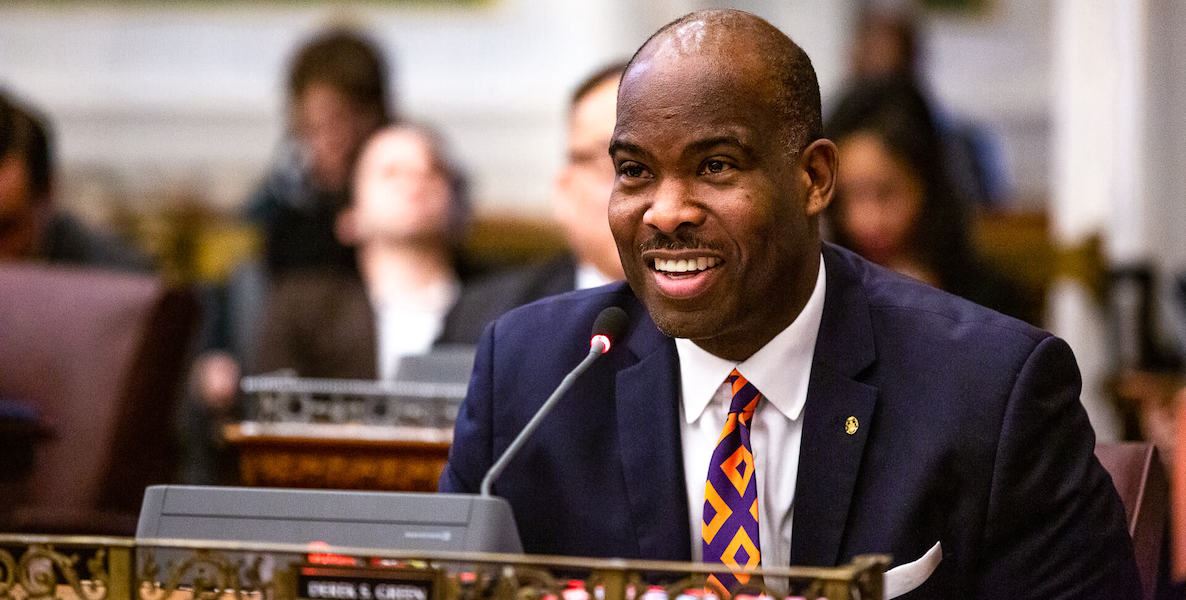Next week, I intend to offer what is expected to be a final amendment to Bill No. 210956, which would establish the Philadelphia Public Financial Authority (“PPFA”) if passed by City Council, hopefully at its session the following Thursday.
This effort would mark the culmination of a multi-stakeholder collaboration starting back when I was first sworn into office six years ago, and builds on work many of us have done since long before that to promote access to capital.
The creation of the PPFA would be yet another contribution to the supports finally being offered to minority-owned businesses in Philadelphia. Currently, of businesses with employees in Philadelphia, only 6 percent are owned by African Americans and 4 percent are owned by Latinx Philadelphians, even though they are respectively 44 percent and 15 percent of the City’s population. Among the many reasons for these disparities is the lack of access to credit.
“The creation of the PPFA would be yet another contribution to the supports finally being offered to minority-owned businesses in Philadelphia,” says Green.
Because of the shocking differentials in racial wealth, Black and Brown business owners typically have far more limited ability to raise startup capital from friends and family. Co-operative businesses, which have a broad ownership structure, face related capital shortfalls. Limited resources narrow options to grow and look riskier to lenders than another business with the same fundamentals.
Recently, public, private and nonprofit entities have been providing more resources to Philadelphians trying to access credit. In addition to their own varied financial and technical services, the Philadelphia Industrial Development Corporation (“PIDC”) and Community Development Financial Institutions (“CDFIs”), like the Enterprise Center and the late Jeremy Nowak’s Reinvestment Fund, are among the entities that have participated in the City’s Business Lending Network, which I launched with the Commerce Department in 2016.
While all these efforts to increase available loan dollars are worthwhile, real limitations in the lending ecosystem remain for businesses to access it. To maintain a balanced portfolio, even the most philanthropic lender must split additional dollars between smaller, less-established, therefore ostensibly riskier businesses and larger, more-established ones that pose less risk. Even more money to lend does nothing to change businesses’ lack of collateral to obtain it.
What might alter it is changing how risky those businesses look on paper. The City has limited resources to replace the missing wealth of Black and Brown family members and friends, but it can substitute for its effect by guaranteeing loans and providing other credit enhancement products. Put simply, these products are not the bread and butter of existing small-business lenders. Because no entity should be too invested in any one business, it would be counterproductive to have one serving this role, and inefficient to divide this function among several.
While the new Green Energy Capital Corporation invests in green projects, the truly needed GRIT Fund is providing resources to CDFIs, and the Accelerator Fund (whose founder, Greg Heller, supports the PPFA) focuses on development, the need of other businesses struggling to obtain collateral has not been met. Hence the PPFA.
As drafted, the PPFA is structured with enough independence from the City that it might qualify as a CDFI, making it eligible to receive Community Reinvestment Act contributions from non-government sources. Obtaining insurance and loan-loss reserves can manage the possibility of defaults, but the City must invest in our businesses to move away from being a place with too few loans, not enough growing companies, and extremely high poverty.
RELATED: Support these 19+ great Black- and Brown-owned businesses that are doing good for the community
Even as they focus on credit enhancements and loans in partnership with existing lenders, PPFA staff will be tasked with continuing to explore a true, FDIC insured, depository institution for the City and other governmental entities. The Bank of North Dakota has served as inspiration for recent efforts in Puerto Rico, American Samoa, California, and New Jersey, as well as other American states and cities, including Philadelphia. The coalition with whom I have been working remains eager to develop a Philadelphia public bank, which would not have retail customers, just like the Bank of North Dakota.
Though I appreciate his kinder words, I disagree with Larry Platt about the advisability, workability and necessity of creating this new institution. Not only can we chew gum and walk at the same time, it is the civic responsibility of elected officials to do so. I look forward to passage of the amended bill and taking the next step to supporting underserved businesses in Philadelphia.
Derek Green is a second-term councilmember-at-large in Philadelphia.
![]()
MORE SOLUTIONS TO GROWING BLACK-OWNED BUSINESSES
Header photo by Jared Piper / Philadelphia City Council




